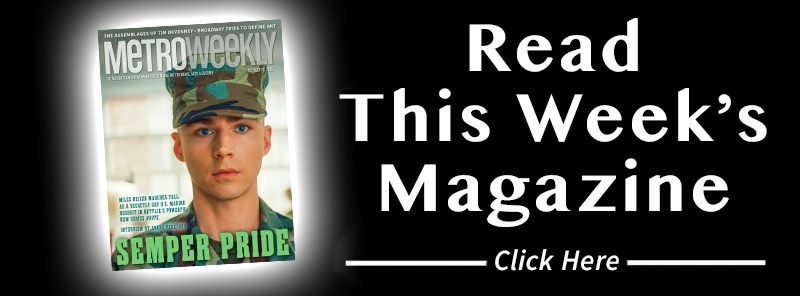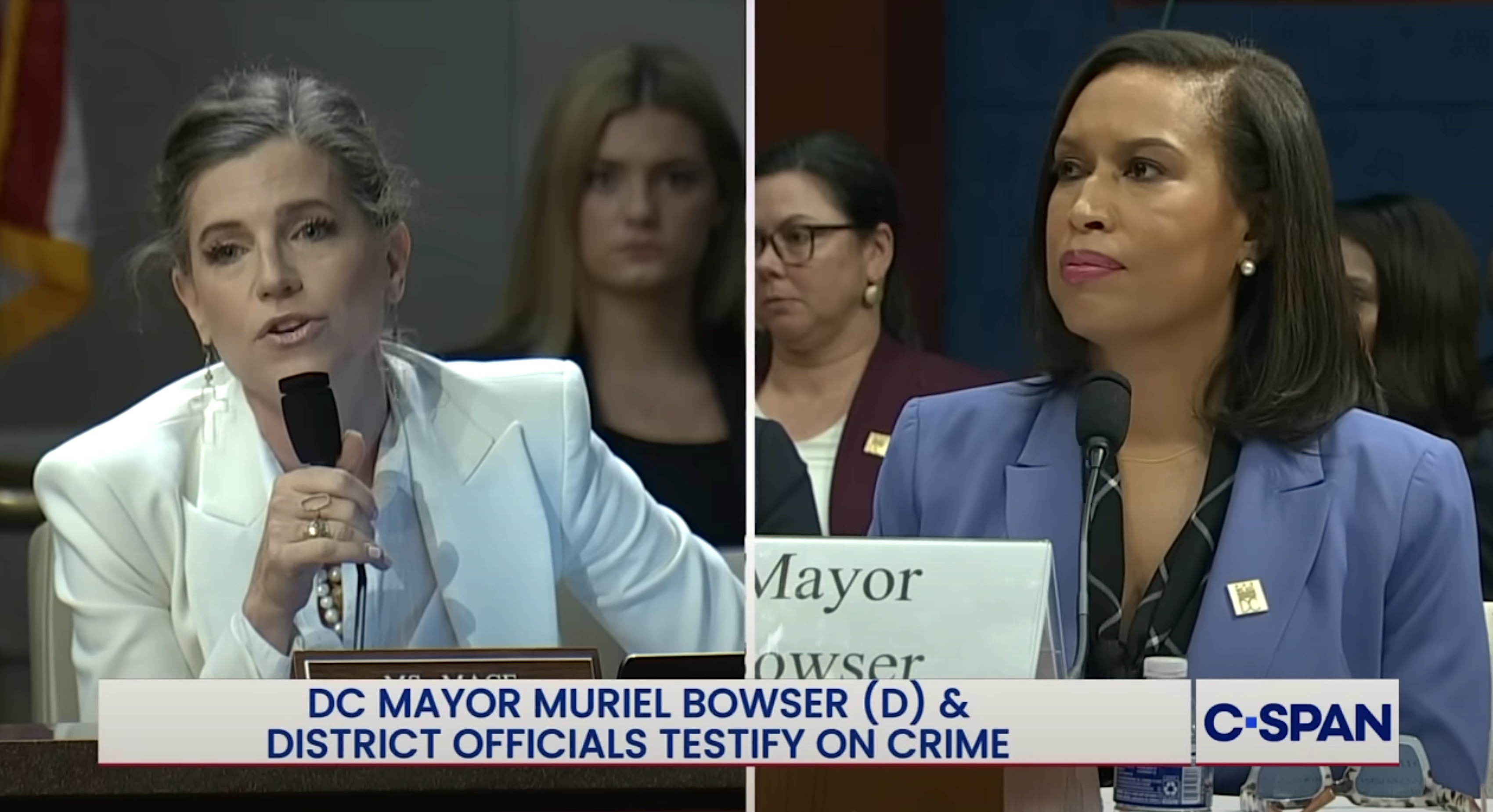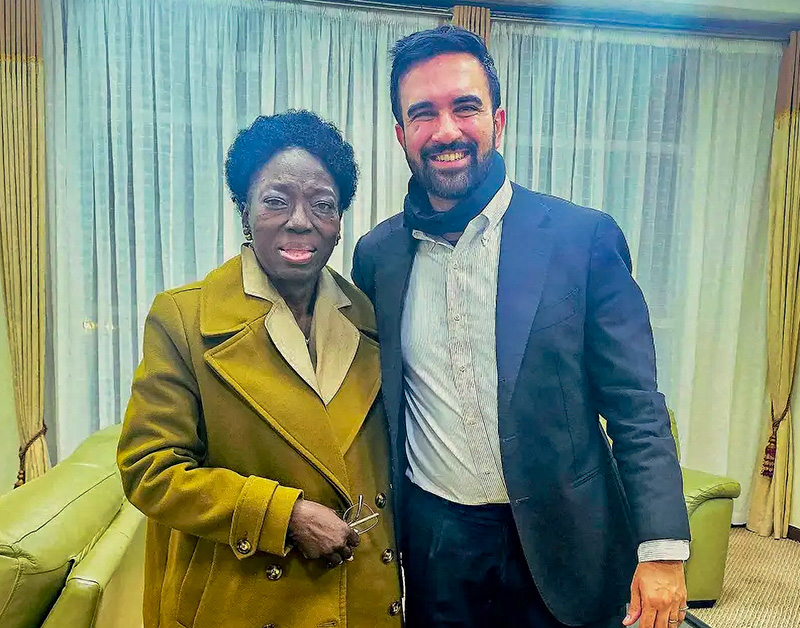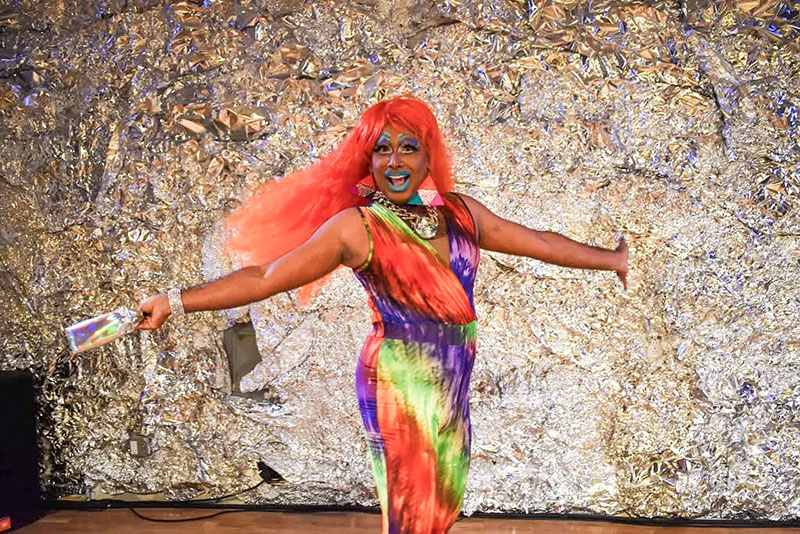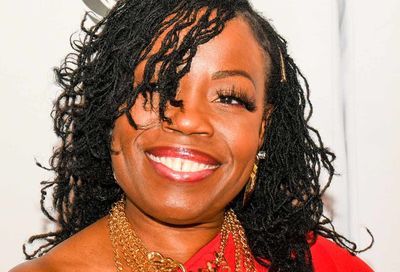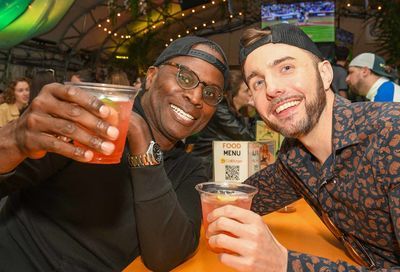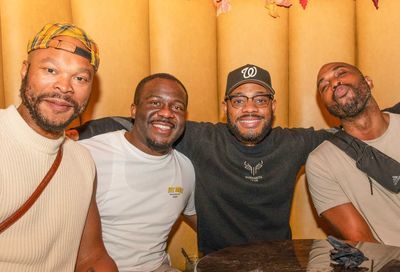The Kiss of Activism
Suspended MD high school student discusses effects of her same-sex kiss controversy
On Wednesday, November 5th, Stephanie Haaser kissed a girl. The twelve-second kiss occurred between Haaser and classmate Katherine Pecore during lunch period at River Hill High School in Clarksville, Maryland. It was the 17-year-old’s first same-sex kiss, an act of defiance conceived by Haaser, who is straight (as is Katherine) in part to fulfill an assignment for English class, and, in larger part, to raise awareness concerning an issue Haaser personally finds upsetting: homophobia in her school.
The kiss — made famous by the swirl of national media attention a week later, which itself arose from the school administration’s suspension of the girls — can be seen as Haaser’s badge of courage, the first Purple Heart for a budding future activist.
“We’ve recognized that it took a lot of courage for these girls to demonstrate their commitment to fairness and to help demolish the notion that there is only one way to look at the issue of equality,” says PFLAG’s David Tseng, whose organization is honoring both girls at its 30th Anniversary function next Thursday, December 11. “When you look at their bravery, you see that it was at once unique, innovative and audacious. It’s precisely the kind of approach that we need to have in understanding what the fight for civil rights is about. The girls have guts. Hats off to them for getting the kind of attention that more of us should get surrounding our issues.”
 Haaser |
METRO WEEKLY: Tell me how the event of November 5th — this very public kiss — came into being.
STEPHANIE HAASER: I was assigned a project for English to perform an act of non-conformity because we were studying famous people who went against the grain of society and expressed themselves, even when their views were offensive to some people. So I decided to protest the homophobia in my school. And I thought of a way to do it in which it would really get the student body’s attention, it would raise discussion, that type of thing.
MW: How did you find your co-conspirator in your act of civil defiance?
STEPHANIE: Well, Katherine and I possess similar political ideologies. We’re very close. So I immediately thought of her. When I first proposed it, she seemed a little nervous. But she heard me out, and agreed to do it.
We first decided to do it in the hallway in between classes. But then I decided that enough people wouldn’t be able to see that, because we wouldn’t be elevated. So I decided to get everyone’s attention at lunch one day.
MW: So you and Katherine stood up on a lunchroom table and —
STEPHANIE: And all eyes turned towards us because this was not exactly a normal occurrence in the lunchroom. I called for everyone’s attention, shouted “End homophobia now!” extended my hand to Katherine and kissed her for around twelve seconds.
MW: Were there any immediate negative reactions?
STEPHANIE: No. I don’t think so. At least I don’t remember any. There was huge support from [several students] cheering for us, especially as we were being led off [by school administrators] to the office for disciplinary measures.
MW: What did the administration say to you directly following the act?
STEPHANIE: They said they had the power to suspend us for up to ten days and told us to expect the worst. Nothing like this had ever happened before, so they were still trying to figure out what to do with us. Our principal was out in the hospital getting surgery, so they just threatened us with the worst case scenario and left it at that. We were suspended for two days.
MW: At the time, did you have any regrets over what you had done?
STEPHANIE: Not at all. I was very happy that I had actually done this and in the days that followed, it was really pretty amazing to see the reactions. High school is a very, very unpredictable place. You have no idea how people are going to react to things that you do. But people were finally talking about this subject that I feel is so important.
MW: The school claims you were disciplined because you created a distraction. But kids in high school cause disruptions all the time and aren’t necessarily suspended.
STEPHANIE: Well, I do believe that it was strange that they suspended me for a distraction. But it all depends on what you call a distraction. There are plenty of things that are could be considered technically distracting. Like loud blaring music sometimes with offensive lyrics that’s played during lunchtime. Isn’t that a distraction? It’s not as if I pushed aside my math teacher and did it in class. It was during lunch. And the fact that I stood on the table well, I’ll gladly repair any damages to the table if I broke it or smudged it.
In my opinion, it was because this act was so outrageous, because it was a sign of gay affection that [the punishment] was so harsh. They say that it was a distraction because people went back and talked about it in class. I consider that one of the most positive and rewarding things to come out of this project. I intended for that to happen. That was probably the biggest accomplishment for me. And so if that is their main cause for suspending me — well, I’m glad I did it. I would not have done it any other way.
MW: How many students are in your school?
STEPHANIE: Approximately fifteen hundred. And going by statistics, one hundred fifty of those students would be gay. And there is a very real and very frightening problem, especially with the homophobia that goes on in the halls and in the classrooms. You hear it every day and it’s so hurtful. Half the time I don’t even think people realize the effect that they have on people that are gay or people that feel so passionately about this.
MW: Give us a for-instance.
STEPHANIE: Well, there’s the ever-prevalent “Oh, that’s so gay,” a comment that is heard so many times and is said so often like it’s harmless, but it really can touch a nerve if you hear that every period of every day if you happen to be gay. If you’re trying to come out to your friends and if they say those comments, it makes you afraid, it makes you not want to be honest. You feel like you can’t because of the reaction that you think you would get based on those comments. And every once in a while you’ll hear “You fag” or “You dyke.” It’s this lack of understanding that people have.
MW: To your knowledge, have there been any acts of violence against kids perceived to be gay?
STEPHANIE: The discrimination is mostly verbal. I don’t think there have been any attacks against people perceived to be gay. But even if someone is perceived to be gay in our school, if they’re not out yet, if they’re just perceived, they can be the target of that verbal abuse for years. They become the scapegoat for everything. I’ve seen it happen in classrooms and it’s horrible. Because there’s nothing one can do, one feels so helpless.
MW: Have you lost any friends over what you did?
STEPHANIE: Yes. It was like a deliberate lack of communication directly following the act. I think that they felt very uncomfortable around me afterwards and didn’t quite know what to say. I hope that I’ve prompted them to think about certain things, but I know that I cannot change their view completely, which is one of the most difficult things about this. Because no matter what I say to them, they’ll ultimately think what they think. All I can hope to do is raise awareness that there is a problem and that something needs to be done. And even if this somehow affects how I’m viewed in their eyes, I consider it something worth going through.
MW: I understand Katherine’s family is uncomfortable with the whole incident.
STEPHANIE: Yes. I think that they were a little scared with the media attention that this was garnering and they didn’t really want to participate in that. After they saw her on Fox-5, they became very upset that it had gone to this level. And I think that they were a little scared of what would happen next. I don’t think that they really want her to do something like that again. I guess they just feel uncomfortable around the whole issue.
MW: What about your family’s reaction?
STEPHANIE: I had told my mom what I was planning to do and I had her immediate support. She sort of said, “Well that’s a great idea for your project. You feel strongly about this. You should go through with it.”
My dad is very proud of me. He was especially excited about the media attention. He taped all of the interviews on CNN and Good Morning, America. So I’m very lucky that they see it as this accomplishment instead of something to be embarrassed about. Because without them it really would have been more difficult. No matter how strongly you feel about something, if your parents think the opposite of you, it’s very difficult to accomplish things if you know for a fact that you don’t have their support, that they won’t stand behind you.
My parents have always been sort of accepting of who [me and my two siblings] want to be and what direction we want to go in life. As we are all growing up, it’s very important that your parents understand that you’re ultimately going to be who you’re going to be. It’s not that they were specific on this issue — you know, “Be tolerant of gay people” — but I owe a lot to my parents. It’s good that I can be honest with them about how I feel.
MW: What do you think ultimately would be the answer to ending homophobia in our schools?
STEPHANIE: Education is probably the most important thing we can do. I know it’s a very sensitive issue, especially in public schools. Some people feel so strongly against it. But, in my opinion, it is the most important thing that we can do to raise awareness about homosexuality — educate people about what it means to be gay, what you can do if you are, groups that you can join, that type of thing. It’s important to have people that understand that it is part of life, that it isn’t abnormal or that there’s something wrong with that person. If it’s taught in a school that it’s an okay thing to be gay, then I think people will probably follow that mindset.
MW: Final question: did you get graded on the project yet?
STEPHANIE: I’m still waiting for the grade on the famous paper. Because I was suspended, I had to submit it at a later date than the rest of my class.
MW: What are you hoping to get?
STEPHANIE: I hope to get an “A.”
Support Metro Weekly’s Journalism
These are challenging times for news organizations. And yet it’s crucial we stay active and provide vital resources and information to both our local readers and the world. So won’t you please take a moment and consider supporting Metro Weekly with a membership? For as little as $5 a month, you can help ensure Metro Weekly magazine and MetroWeekly.com remain free, viable resources as we provide the best, most diverse, culturally-resonant LGBTQ coverage in both the D.C. region and around the world. Memberships come with exclusive perks and discounts, your own personal digital delivery of each week’s magazine (and an archive), access to our Member's Lounge when it launches this fall, and exclusive members-only items like Metro Weekly Membership Mugs and Tote Bags! Check out all our membership levels here and please join us today!







